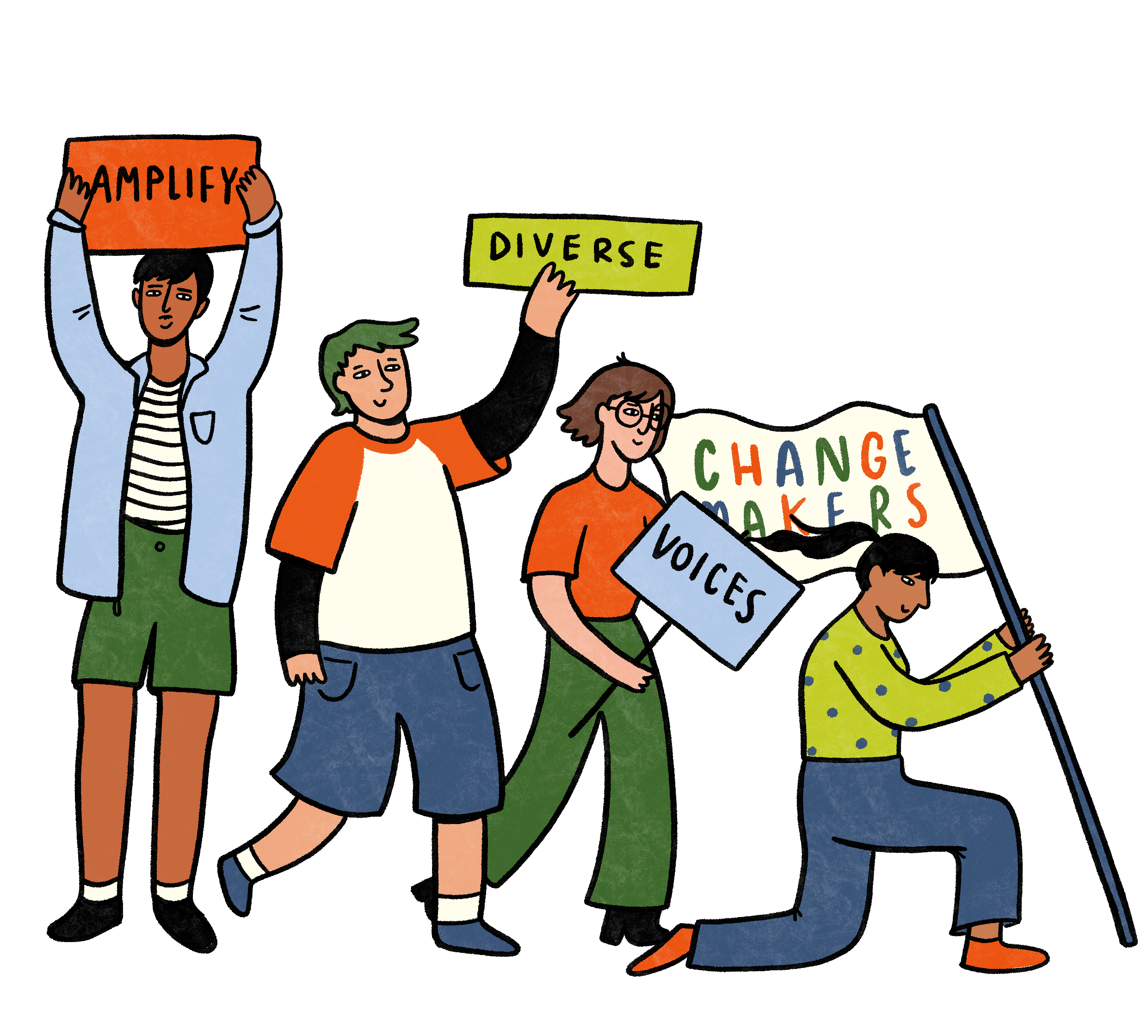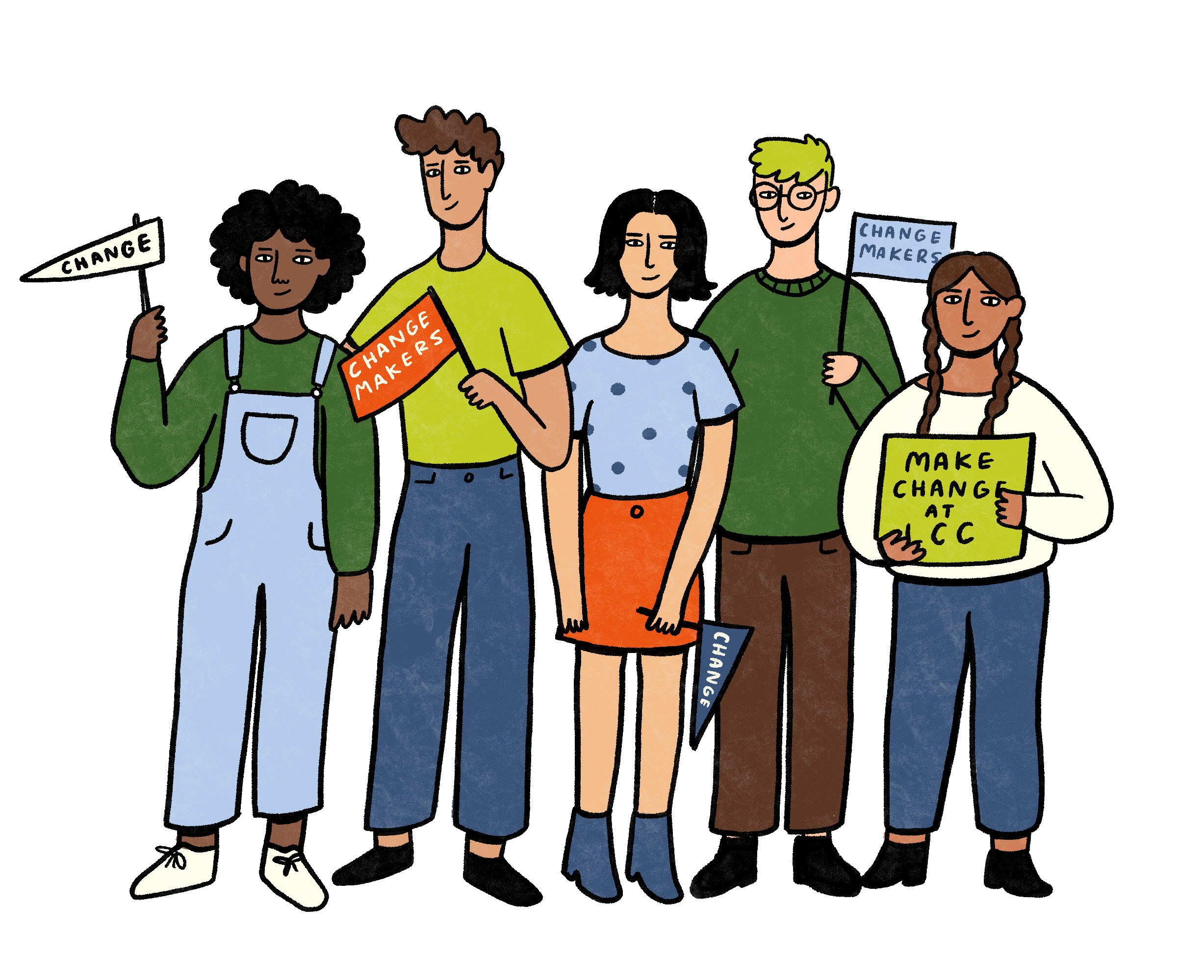About the project
Programme: Sound and Music
Course: Sound Arts
Project duration: 1 focus group per term
Sessions attended: 3
Changemakers involved: Cassia Clarke (LCC Changemaker 2020-present)
Context
For unit feedback, happening once per term in 1-hour meeting format, students are called to feedback on the unit for improvement.
Feedback session
Before the session:
Course staff prepare questions and discussion themes for the session with students. They send email communication to students about the session and that there will be food provided.
On the session:
Definitions of key topics, such as racial and social justice and decoloniality. Changemakers and Climate Advocates are introduced only to the students attending the session, with a limited time allocated for interaction with participants.
Lunch is provided during the sessions as a form of reimbursement for student participation.
Observations
Student involvement feels transactional
Students are confined to pre-selected topics, limiting meaningful exploration of their experiences and placing them in a less empowered role.
Self-selecting of participants
This approach has great likelihood to exclude students who are most in need of support. Students who are more proactive and have the privilege of time and resources could sign up way more easily compared to others.
Outcomes from the approach
- Low student turn up (on average 2 students showed up).
- There is no ongoing same student involvement to track progress from previous sessions.
- The feedback gathered from the session tends to be around student-staff communications, which unfortunately recurred over 4 sessions.
- Food is often overprepared, under-consumed and wasted.
Suggestions
Involve LCC Changemakers
Introduce the programme-allocated LCC Changemaker during the course inductions.
As someone not directly linked to their course, we can provide inclusive space where we can elicit valuable feedback often missed in these sessions. Further, we can get to the voices that often remain unheard in the classroom.
Collaborate with ArtSU
Students could collaborate with ArtSU to promote collective action and peer support within their courses. This approach can reduce pressure on staff, allowing them to focus on addressing only the most urgent matters.
Staff training
Staff training is essential to encourage more open and less controlled facilitation of discussions, while also creating safer spaces for meaningful dialogue.


